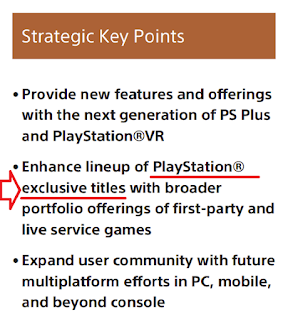When a company can't even hold an annual marketing event because what it would say and show there would belie its arguments against a merger, then maybe the company shouldn't be opposing the merger in the first place...
The biggest Microsoft-ActivisionBlizzard news today is the following two-tweet thread by Millie Amand, an entertainment industry analyst who has previously been first to inform of interesting developments in the games business:
"The ongoing CMA investigation for MS acquisition of AB, has indeed delayed any Showcase plans for Sony. Exclusive titles and first party I.P were ‘locked in’. Sony believe a showcase will add weight to MS arguments. Silent Hill & Kojima Who Am I reveal were part of show."
The initial announcement of the showcase was scheduled for 11th October with the showcase taking place 20th Oct.
2/2
— Millie A (@millieamand) October 17, 2022
The initial announcement of the showcase was scheduled for 11th October with the showcase taking place 20th Oct.
Sony holding firm for now.
Sony used to hold those Showcase events every two years, and more recently it's been an annual thing. If what Mrs. Amand says is true (and she is deemed to have great sources), Sony's problem is simply that there are--as Microsoft told the UK's Competition & Markets Authority (and presumably also other antitrust authorities)--about five times as many PlayStation-exclusive as Xbox-exclusive games.
In a previous post (on the formal notification of the merger to the European Commission) I already showed this excerpt from Sony's annual report, which stresses the objective of "enhanc[ing] the lineup of PlayStation exclusive titles with broader portfolio offerings of first-party and live service games" (click on the image to enlarge):
According to Millie Amand, two of the titles Sony was going to proudly present at the event are
Silent Hill, a survival horror game franchise, and
famed (Metal Gear Solid) ex-Konami video game creator Hideo Kojima's next title, for which he#s been running a "Who am I/Where am I" campaign.
The close relationship between Sony and Mr. Kojima was first announced in December 2015:
Now Sony is telling the UK CMA and regulators in other jurisdictions that Activision's Call of Duty is so incredibly important that Microsoft's Xbox gaming console could displace the PlayStation. However, as Microsoft has pointed out in a response, even if all CoD players switched from the PlayStation to the Xbox, Sony would still be the undisputed market leader.
The UK CMA has to get its facts right, and for now I believe they ultimately will. The CMA can do better than its Phase 1 decision in that merger investigation. The Issues Statement (PDF) that was released on Friday is more of the same, but the decisive part of the review has just begun. And Sony appears to be very afraid that boasting some major new PlayStation-exclusive games would not be conducive to its efforts to delay or derail the deal.
Potentially, the fact that this came out because of Millie Amand's tweets will actually hurt Sony even more. It shows that they have something to hide--including that they have to hide Hideo Kojima's next title. But this may be more indicative than anything of the bankruptcy of Sony's argument.
In the first half of this month, a favorable decision in Brazil and a statement by a competitor--Take-Two Interactive CEO Strauss Zelnick-- were good news for Microsoft's acquisition of Activision Blizzard. Now Sony didn't want to give Microsoft additional ammunition on the 20th.
The GamingIntel website, which may have been first to report on Millie Amand's tweets, isn't 100% certain that Sony indeed postponed its event only because of that merger review process, but wouldn't be surprised in the slightest:
"Of course, this is all assuming that the insider is correct. Like any ‘inside’ information, it’s good practice to take it with a pinch of salt. However, with how big the news of the CMA’s investigation has been, it would be no surprise for Sony to lay low."
Sony is the only company to criticize the deal publicly. Google is also known to be trying to dissuade competition regulators (particularly the European Commission, with some of whose officials Google's lawyers reportedly met last month) from granting clearance, the number one reason being Microsoft's vision of open app markets and the number two--which is factually related--that Google prefers to cement its Android app distribution monopoly through dealings of the kind that Microsoft might not be nearly as receptive to as Activision Blizzard used to be.
